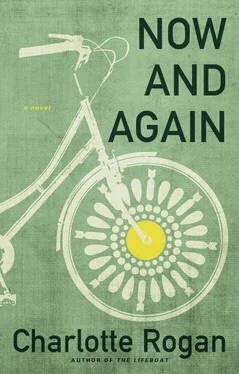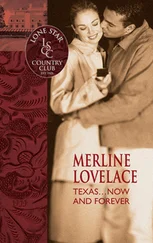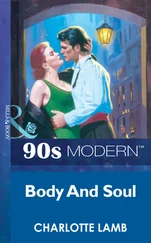A soldier wrote to say, “Why are you doing this? People don’t want to know all the risks because then no one would do anything.”
But Kelly kept passing the stories on to Le Roy and Le Roy kept blasting them up on the site and Martin Fitch kept advising them on which documents to release to the public and E’Laine came more and more often to do odd jobs and the single mother was there almost every evening with a hot, home-cooked meal. Now and then one of the men would say, “Man, this thing is really taking off,” but mostly they concentrated on the daily tasks, with Penn feeling good that the other men needed him less and less, because wasn’t the whole point to set them up on their own? When he couldn’t sleep, he tramped through the neighborhood on patrol. Once, he scared off someone who was trying to jimmy a lock on a building down the street. Another time, he chased two men from the shadows, gaining on them as they cut through an empty lot and circled back toward the river. He was running easily, his shadow catching up with him when he passed a streetlight before disappearing in the dark. The closer he got, the more infuriated their heavy, labored breathing made him. “You shouldn’t go on a mission you’re not ready for,” he shouted.
When the slower of the two men tripped, Penn made the decision to keep after the faster one, sensing weakness there too, and panic. With panic, he knew from experience, came mistakes. The man took to the street where the running was easier, which gave Penn a further advantage because the path was predictable and because he could save a few feet on the curve. When his quarry ducked left, headed across a parking lot and toward a forested hillside that dropped toward the river, Penn knew he had won — because of a chain-link fence that was hidden in the tangle, which meant the man would have to retrace his steps back up between the parked cars to the road, and because he was faltering while Penn stayed strong. Penn hung back. It was better to tackle a spent man than one with some kick left in him. As predicted, the man cut up the embankment toward the highway. Penn turned on one last burst of speed, and in another minute he had the target on the ground.
“Okay, mister, okay.”
When he saw it was only a teenaged kid, the anger drained out of him and he said with more violence in his voice than he felt, “This is my neighborhood. You mess with it, you mess with me.”
“Okay,” the kid said again.
His hat had fallen off. Penn picked it up and held it out in a gesture of conciliation. “Where do you live?” he asked.
The boy waved vaguely at the surrounding streets of ramshackle houses.
“Give me the exact address,” said Penn.
The boy gave it to him.
“I’ll tell you what. You bring your friend here tomorrow night at eleven and I won’t tell the police about you. I need recruits for my patrol.”
“What patrol?” asked the kid.
“You’ll find out tomorrow. You’ll start off as grunts, but you can work your way up.”
In February, Colonel Falwell contacted Penn to say he was using his time stateside to check on his wounded troops. “The families said some of them are with you.”
“Yes sir,” said Penn. “Some of them are.”
“I’d like to touch base with them. Do they want to come down here to Washington?”
“We were there in the fall,” said Penn. “It didn’t go so well, but I’ll ask them.”
“And if that’s not possible, you might make the trip yourself. You live in Connecticut if I remember correctly.”
Instinct told Penn to let the misinformation stand, so he said, “Yes sir, I do.”
On the day of the meeting, Penn set off when it was still dark. It was peaceful in the car. He hadn’t been alone for weeks, and he liked listening to the whoosh of tires on the damp road and watching the light come up and the scenery change. He liked seeing the small businesses pop up as he approached a town and the neat suburban lawns unspool into farmland as he left it. He liked pulling into a service station and smelling the mix of gasoline and coffee and saying, “Morning” to the station attendants in their neat gray uniforms with their first names stitched in red script on white canvas patches and knowing just that about them, nothing else. He wondered what Falwell would say to him, if he knew about the protest or the website. But something about the closed capsule of the car protected him from the birds of worry, so he fiddled with the radio as he drove and mostly he thought of nothing, just let impressions flow over him: a hill with fruit trees, an abandoned baseball field, a middle-aged woman on a bicycle, a man in a cap and faded jeans who had been pulled over by the police.
But now and then one of the worries would peck through and he would think about Louise and all of the people he had let down and about how, if things kept going the way they had been, they were likely to cover their expenses with donations alone, without tapping into any more of the seed money from Penn’s trust fund. And just that week, Kelly had said he had thought of a way for the site to turn a profit.
“I’ve applied for nonprofit status,” Penn had told him.
“Yeah, sure,” said Kelly. “But what if I could find some advertisers in addition to the donors?”
Penn had been noncommittal, but now the word “profit” rattled around in his head like unexploded rounds. He should be happy the men were pulling in different directions because that meant he had accomplished what he had set out to do, so why was he so bothered by it? He supposed that alongside his desire to help them was an equally strong desire to prove himself as a leader, and what kind of a leader was he if his men weren’t following enthusiastically along behind?
Just after the turnoff to Annapolis and Fort Meade, the highway cut through a thick stand of trees. He tried to imagine that he was lost in a primeval forest, that all anybody needed to live was a simple cabin with a rough pine floor and a plot of land with a river running through it and a few tools and some farm animals and of course a rugged inner core, but with cars and semis whizzing by, it was hard to hold on to the vision.
Anyway, he thought as he pulled off at a rest stop for another cup of coffee and a piss, there was no denying the fact that Kelly was developing a knack for business and that Le Roy was a whiz with computers and that Danny could go for an entire day without hitting the deck when the train went through. In that regard, the website was a complete success. It was Penn himself who lacked a real direction, and in the back of his mind he was hoping his meeting with Falwell would help him with that.
10.3 Gordon Falwell
Falwell shuffled through the stack of reports on his desk — the one that said ten of eighteen benchmarks had been met in Iraq and the one that said eleven of the benchmarks hadn’t been met and that only three had been completed. He found the report he was working on, and then he picked up a pen and changed “modest” to “significant.” He changed “trained” to “empowered,” and in front of “leadership” he wrote “committed and determined.” Fuck the benchmarks. Was there a benchmark for understanding the enemy? Was there one for unit readiness and self-sacrifice and morale? Was there one for showing that Americans wouldn’t put up with crazy fucking shit? “Unmistakable signs of progress,” he wrote. “High levels of local cooperation and trust.” The counterinsurgency was working. They were definitely winning hearts and minds.
Falwell was in Washington to provide input for an operational assessment and, if all went well, to be recommended for a promotion and to see someone about a persistent pain in his gut and a worrisome rattling in his chest. To top it off, now one of his after action reports was being called into question on the Internet. Miller, his old NCO, had brought it to his attention, and if certain other people saw it, it could torpedo his career. He could only surmise he had Captain Sinclair to thank for drawing attention to the inconsistencies. Sinclair was the one who had first written up the IED incident, and he was the one with the guilty conscience. Any report depended on the person writing it, as well as on the freshness of the memories and on biases and agendas the writer might not even know he held. A reasonable man could argue that Sinclair’s version of events was less accurate than the more measured official version, but the colonel didn’t want to have to make that case. Things were muddied enough without going down some he-said-she-said rabbit hole. Falwell wasn’t angry so much as irritated. Mightily irritated. And, to be honest, his feelings were a little hurt. When he’d altered the report, he’d been looking out for Sinclair’s interests as much as for his own.
Читать дальше












